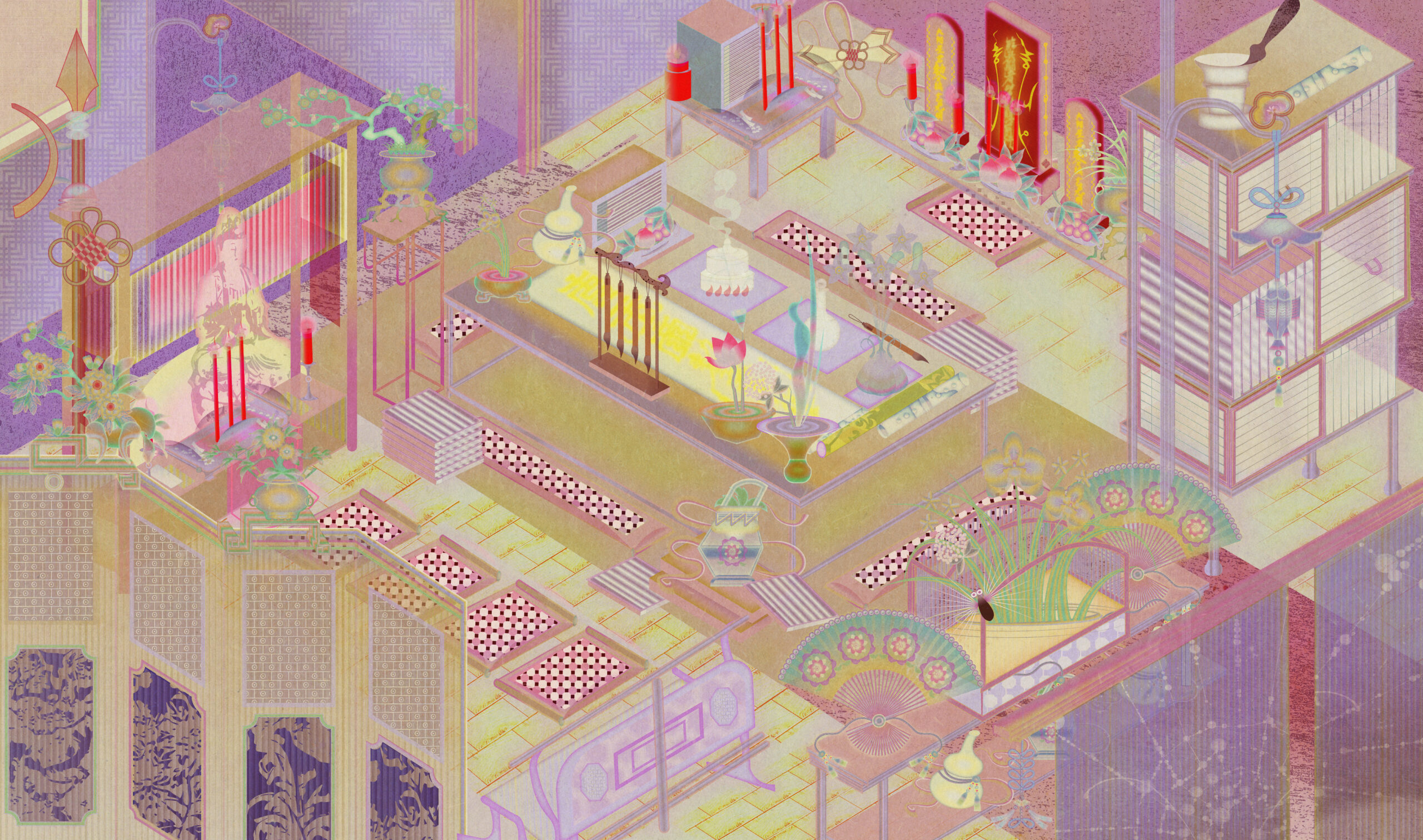LIU WEI: TRILOGY
| July 12, 2011 | Post In LEAP 9

In rhetoric, things come in threes, and Liu Wei is above all a rhetor. Thus his largest exhibition to date was divided, like Caesar’s Gaul— unevenly by size, but evenly by impact— into three parts. To the right of the entrance, the installation Golden Section offered a space divided into several by the lurking furniture that occupies its center, in front of a meticulous (and meticulously framed) abstract painting. In the main hall, titled Merely a Mistake, sat a forest of shoddy cathedralesque towers, cobbled together from demolition waste accented in socialist green. In the back, a tunnel-like room of verticals and horizontals framed a set of televisions, subjected at regular intervals to electrical impulses that momentarily decorated them with white lines. (A city sculpted from books lurked in the foyer, parenthetically setting the stage for what lay beyond.)
For Liu Wei, as for the other “Post-Sense Sensibility” artists with whom he emerged, the opening question for any work is about how to occupy site. Theirs is a gritty mentality, distinctly the province of artists who cut their teeth in basement shows, back when even finding somewhere to show was the problem. (Site is space, and space is social, and social is political, and so on in the long chain of hermeneutic substitutions that follows.) A decade on, Liu remains a connoisseur of site, similar in disposition, if not affect, to the Western artists whose poetic sense of site-specificity critic Tim Griffin discusses in terms of “compression algorithms.” Liu understands this venue, funded by a Chinese private bank and sited in a former steel mill, as something other than a straightforward white cube. His response to these circumstances is aesthetic, using a well-honed material vocabulary of salvaged woods and flourescent lamps to obscure the museum’s more functional elements. Vents and baseboards hide behind lumber assemblages; utilitarian lighting fixtures just barely reveal, through their intentional arrangement, that they did not come with the space.
In a recent interview with Hans Ulrich Obrist, Liu Wei repeatedly emphasized “reality” as the defining stimulus behind his creations. This exhibition, in turn, was for him a way of piecing together enough unrelated elements so as to “compete” with the reality beyond the museum. While Liu never quite specifies what he means by reality, he seems to be using the word in its dystopian, not romantic, sense. Take for example that blacked-out furniture, attempting to give material form to the notion of information control by black marker. Take the Merely a Mistake sculptures, which grow from freehand geometric drawings he makes while eating or socializing into elaborate contraptions whose precise contours are determined by the workers responsible for their fabrication, without further input from the auteur. Or take the television sets, which struggle under the interpretive weight of their superficial similarity to Nam June Paik; while their faux wood and black plastic casings evoke an earlier, analogue moment, Liu insists that the thrust of the work lies not in any evocation of the past through the readymade, but in the simple projection of “power.” The work’s bilingual title plays on the overdetermined translation of the English Power (as written on the switch of an appliance) as Kai/Guan (on/off) in Chinese. With all these works, the question becomes the extent to which we allow the artist’s (read: the State’s) intent to shape our reading of what he has wrought. This, in turn, is the basic psycho-political question of contemporary China writ small.
In the end, the exhibition succeeds mainly because of the singular visual (rhetorical?) device common to each of its three parts: the rigid, axial, single-point sightline that structures each room. Beloved by Chinese emperors, Albert Speer, and introductory painting instructors alike, it offers just enough tyranny to draw us into the narrative. Just like a successful schoolboy composition, or a good political speech.
Philip Tinari

